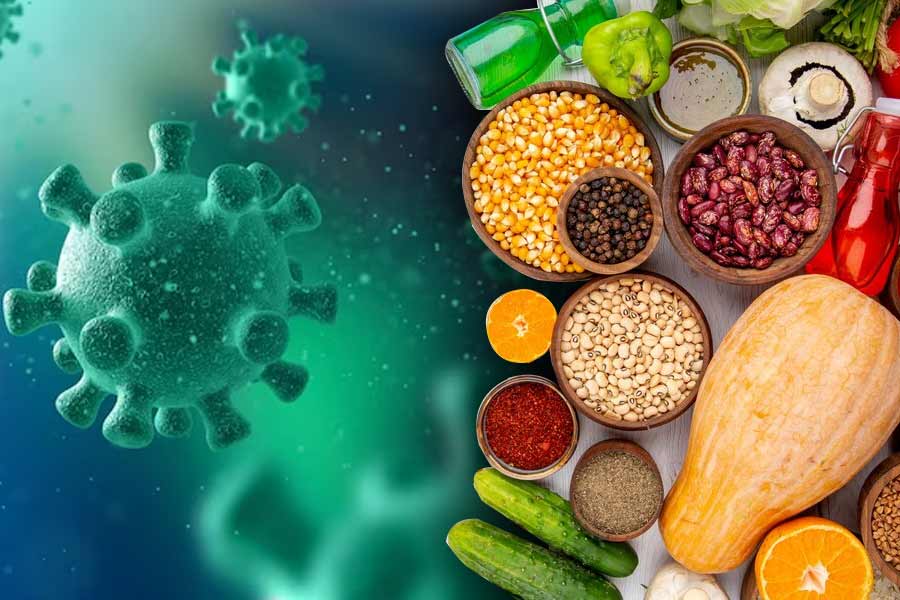People following a largely plant-based or vegetarian diet are 39 per cent less likely to get infected with Covid, new research has found.
Researchers found that omnivores consuming meat more than three times a week reported a "significantly higher" incidence of COVID-19 than those dependent on plant-based or vegetarian diets. They were also more likely to have had moderate to severe infection, the study published in the "British Medical Journal Nutrition Prevention & Health" has found.
The researchers, including those from the Universidade de Sao Paulo, Brazil, said it may be that plant-based diets provide more nutrients that boost the immune system and help fight viral infections The findings suggest that a diet high in vegetables, legumes and nuts, and low in dairy and meat products may thus help ward off the infection, they said.
However, being an observational study, the team could not establish a causal relationship. They also acknowledged that, having relied on personal recall and subjective assessment, the study has limitations.
For the study, the researchers recruited more than 700 adults -- 424 omnivores and 278 people whose diets are predominantly plant-based, comprising vegetables, legumes and nuts, and less or no dairy and meat.
Of the plant-based group, 191 were vegetarians and vegans while 87 ate meat three or fewer times a week.
The participants were surveyed through questionnaires for details around their usual eating patterns and diets, along with lifestyle and medical history, and vaccination against Covid.
In all, 47 per cent or 330 people reported having had a Covid diagnosis or an incidence. Of these, 32 per cent (224) had mild and 15 per cent (106) moderate to severe symptoms, the researchers said.
They also found that the omnivores reported a significantly higher incidence of Covid than those consuming plant-based diets -- 52 per cent vs 40 per cent. The omnivores were also found to be more likely to have experienced moderate to severe infection -- 18 per cent vs 11 per cent.
The researchers further said the omnivores also reported more medical conditions and lower rates of physical activity, along with showing a higher prevalence of overweight and obese conditions -- all of which, they said, were factors associated with a higher risk of getting infected with Covid and having severe symptoms.
Performing statistical analyses, the researchers found that following a predominantly plant-based or vegetarian/vegan diet was associated with a 39 per cent lower incidence of Covid infection than an omnivorous diet.
"Plant-based dietary patterns are rich in antioxidants, phytosterols and polyphenols, which positively affect several cell types implicated in the immune function and exhibit direct antiviral properties," the researchers wrote.
"In light of these findings and the findings of other studies, and because of the importance of identifying factors that can influence the incidence of COVID-19, we recommend the practice of following plant-based diets or vegetarian dietary patterns," they wrote.
Except for the headline, this story has not been edited by The Telegraph Online staff and has been published from a syndicated feed.











